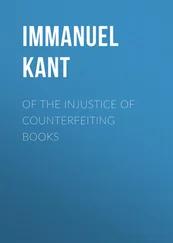There is nothing actually given — we can be conscious of nothing as real, except a perception and the empirical progression from it to other possible perceptions. For phenomena, as mere representations, are real only in perception; and perception is, in fact, nothing but the reality of an empirical representation, that is, a phenomenon. To call a phenomenon a real thing prior to perception means either that we must meet with this phenomenon in the progress of experience, or it means nothing at all. For I can say only of a thing in itself that it exists without relation to the senses and experience. But we are speaking here merely of phenomena in space and time, both of which are determinations of sensibility, and not of things in themselves. It follows that phenomena are not things in themselves, but are mere representations, which if not given in us — in perception — are non-existent.
The faculty of sensuous intuition is properly a receptivity — a capacity of being affected in a certain manner by representations, the relation of which to each other is a pure intuition of space and time — the pure forms of sensibility. These representations, in so far as they are connected and determinable in this relation (in space and time) according to laws of the unity of experience, are called objects. The non-sensuous cause of these representations is completely unknown to us and hence cannot be intuited as an object. For such an object could not be represented either in space or in time; and without these conditions intuition or representation is impossible. We may, at the same time, term the non-sensuous cause of phenomena the transcendental object — but merely as a mental correlate to sensibility, considered as a receptivity. To this transcendental object we may attribute the whole connection and extent of our possible perceptions, and say that it is given and exists in itself prior to all experience. But the phenomena, corresponding to it, are not given as things in themselves, but in experience alone. For they are mere representations, receiving from perceptions alone significance and relation to a real object, under the condition that this or that perception — indicating an object — is in complete connection with all others in accordance with the rules of the unity of experience. Thus we can say: “The things that really existed in past time are given in the transcendental object of experience.” But these are to me real objects, only in so far as I can represent to my own mind, that a regressive series of possible perceptions- following the indications of history, or the footsteps of cause and effect — in accordance with empirical laws — that, in one word, the course of the world conducts us to an elapsed series of time as the condition of the present time. This series in past time is represented as real, not in itself, but only in connection with a possible experience. Thus, when I say that certain events occurred in past time, I merely assert the possibility of prolonging the chain of experience, from the present perception, upwards to the conditions that determine it according to time.
If I represent to myself all objects existing in all space and time, I do not thereby place these in space and time prior to all experience; on the contrary, such a representation is nothing more than the notion of a possible experience, in its absolute completeness. In experience alone are those objects, which are nothing but representations, given. But, when I say they existed prior to my experience, this means only that I must begin with the perception present to me and follow the track indicated until I discover them in some part or region of experience. The cause of the empirical condition of this progression — and consequently at what member therein I must stop, and at what point in the regress I am to find this member — is transcendental, and hence necessarily incognizable. But with this we have not to do; our concern is only with the law of progression in experience, in which objects, that is, phenomena, are given. It is a matter of indifference, whether I say, “I may in the progress of experience discover stars, at a hundred times greater distance than the most distant of those now visible,” or, “Stars at this distance may be met in space, although no one has, or ever will discover them.” For, if they are given as things in themselves, without any relation to possible experience, they are for me non-existent, consequently, are not objects, for they are not contained in the regressive series of experience. But, if these phenomena must be employed in the construction or support of the cosmological idea of an absolute whole, and when we are discussing a question that oversteps the limits of possible experience, the proper distinction of the different theories of the reality of sensuous objects is of great importance, in order to avoid the illusion which must necessarily arise from the misinterpretation of our empirical conceptions.
59 I have elsewhere termed this theory formal idealism, to distinguish it from material idealism, which doubts or denies the existence of external things. To avoid ambiguity, it seems advisable in many cases to employ this term instead of that mentioned in the text.
Section VII. Critical Solution of the Cosmological Problem.
Table of Contents
The antinomy of pure reason is based upon the following dialectical argument: “If that which is conditioned is given, the whole series of its conditions is also given; but sensuous objects are given as conditioned; consequently . . . ” This syllogism, the major of which seems so natural and evident, introduces as many cosmological ideas as there are different kinds of conditions in the synthesis of phenomena, in so far as these conditions constitute a series. These ideas require absolute totality in the series, and thus place reason in inextricable embarrassment. Before proceeding to expose the fallacy in this dialectical argument, it will be necessary to have a correct understanding of certain conceptions that appear in it.
In the first place, the following proposition is evident, and indubitably certain: “If the conditioned is given, a regress in the series of all its conditions is thereby imperatively required.” For the very conception of a conditioned is a conception of something related to a condition, and, if this condition is itself conditioned, to another condition — and so on through all the members of the series. This proposition is, therefore, analytical and has nothing to fear from transcendental criticism. It is a logical postulate of reason: to pursue, as far as possible, the connection of a conception with its conditions.
If, in the second place, both the conditioned and the condition are things in themselves, and if the former is given, not only is the regress to the latter requisite, but the latter is really given with the former. Now, as this is true of all the members of the series, the entire series of conditions, and with them the unconditioned, is at the same time given in the very fact of the conditioned, the existence of which is possible only in and through that series, being given. In this case, the synthesis of the conditioned with its condition, is a synthesis of the understanding merely, which represents things as they are, without regarding whether and how we can cognize them. But if I have to do with phenomena, which, in their character of mere representations, are not given, if I do not attain to a cognition of them (in other words, to themselves, for they are nothing more than empirical cognitions), I am not entitled to say: “If the conditioned is given, all its conditions (as phenomena) are also given.” I cannot, therefore, from the fact of a conditioned being given, infer the absolute totality of the series of its conditions. For phenomena are nothing but an empirical synthesis in apprehension or perception, and are therefore given only in it. Now, in speaking of phenomena it does not follow that, if the conditioned is given, the synthesis which constitutes its empirical condition is also thereby given and presupposed; such a synthesis can be established only by an actual regress in the series of conditions. But we are entitled to say in this case that a regress to the conditions of a conditioned, in other words, that a continuous empirical synthesis is enjoined; that, if the conditions are not given, they are at least required; and that we are certain to discover the conditions in this regress.
Читать дальше












